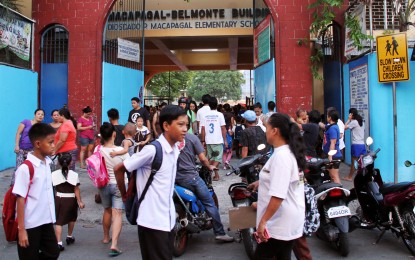
MANILA – A business group has urged the government to implement reforms to address woes in the country's education system.
In a virtual briefing Thursday, Philippine Business for Education (PBEd) executive director Love Basillote said problems on access to education and the quality of education has become grave due to the ongoing coronavirus pandemic.
These recommendations, she said, include addressing malnutrition; increasing budget and resources for education; establishing an Autonomous Assessment Agency that will consistently diagnose strengths, weaknesses, and target interventions; passing a National Teacher Education Scholarship Bill to infuse the system with the best and the brightest teachers; and bridging the gaps and strengthening the implementation of mother tongue-based multilingual education.
Basillote said education spending in the country remains low relative to the gross domestic product and the pandemic has widened the learning loss.
Data from the Department of Education show that for the school year 2020 to 2021, there are 2.7 million students from kindergarten to Grade 12 who dropped out.
On the other hand, socioeconomic inequities likewise aggravate the situation as there is low access to devices and connectivity to pursue schooling amid the pandemic.
Basillote added that 74 percent of public schools and 345,000 households nationwide do not have an internet connection.
Limited access to pre-school and children in poor communities going to school hungry also contributed to the learning crisis in the country, she added.
Low learning outcomes, she said, will persist due to concerns on the language of instruction and “low teacher quality”.
Meanwhile, PBEd chair Ramon del Rosario said there is a need to look at the problems hounding the country's education system from different perspectives.
“We need to see the bigger picture and implement reforms in crucial areas that determine the quality of education that we provide to our students. With a learning crisis on our hands and the future of millions of Filipinos at stake, what we need now is a strong, multi-sectoral coalition that will push for education reforms and ensure that quality education becomes a top priority in the national development agenda,” del Rosario said. (PNA)
